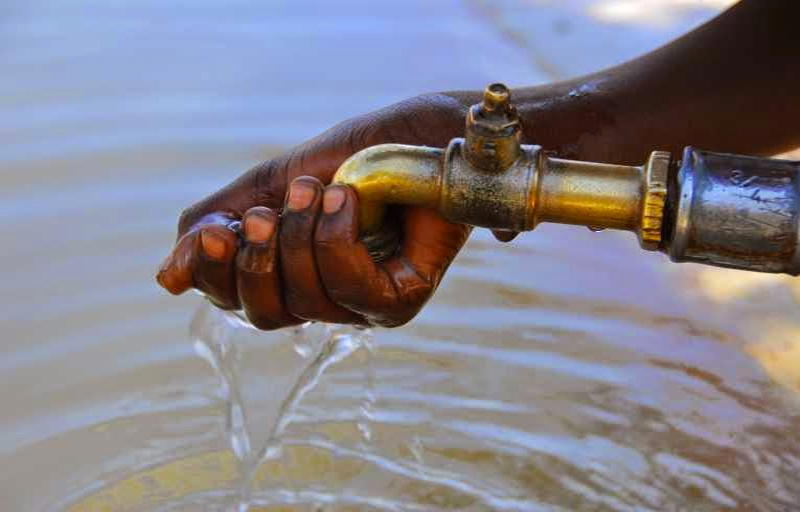Mixed reactions trail Lagos Water Corporation’s PPP initiative

Some Lagos residents have expressed mixed reactions to the pilot Public-Private Partnership (PPP) model announced by the Lagos State Water Corporation (LWC) to provide expanded water access to over 22 million people.
They disclosed this in separate interviews with the News Agency of Nigeria (NAN) on Sunday in Lagos.
NAN reports that some residents described the PPP model as a welcome development, while others raised concerns about its affordability, sustainability and transparency in the implementation process.
The Lagos PPP pilot model is part of the state government’s strategy to address the growing demand for potable water and reduce dependence on boreholes, water tankers, and sachet water, which often pose environmental and health risks.
For Ese Brume, a Lekki resident, the PPP initiative could expand access to clean water but raised questions about affordability and service quality.
“Access to potable water is necessary for the well-being of the residents.
“However, if it comes at a cost, can Lagosians afford it? And will the service be sustainable?” she asked.
Mrs. Florence Ogbu, an entrepreneur residing at the Jakande Estate, Isolo, described the initiative aimed at boosting access to potable water as commendable.
Ogbu, however, said the initiative must not worsen the economic burden of residents already grappling with high utility bills.
Additionally, Mr. Henry Adeboye, a lawyer residing in the Okota area of the state, expressed concerns over regulation, citing past experiences with cost escalations in the waste management sector.
Adeboye urged the government to establish a multi-stakeholder monitoring committee to prevent exploitation.
Similarly, Mr Bright Okwuchukwu, a trader who resides in the Surulere area, opposed the plan, warning that inviting private investors could lead to water privatisation and higher bills.
“It is a wrong move. It will not solve the potable water deficit challenge,” he said.
Nkechi Abbe of Alagbado and Obiageli Ogbolu of FESTAC described the initiative as “laudable” and potentially life-saving, as it reduces waterborne diseases and curbs indiscriminate borehole drilling.
Mr Edwin Nwachukwu, a retiree and media consultant at Egbeda, said affordable access to clean water would significantly improve living standards.
Vivian Emesowum, the Executive Director of the Grassroots People and Gender Development Centre, a non-governmental organisation (NGO), supported private sector involvement but stressed that the government must retain ownership of water resources and ensure transparency.
“We cannot exchange a water crisis for an affordability crisis,” Emesowum said.
However, some Civil Society Organisations (CSOs) criticised the initiative as a veiled attempt at water privatisation.
The group of six CSOs has petitioned the Lagos State House of Assembly on the pilot PPP model proposed by the LWC to expand water access to Lagos residents.
The CSOs include the Resilience Development Initiative, Citizens Free Service Forum, the Environmental Defenders Network and the Child Health Organisation.
Others are the New Life Community Care Initiative and the Ecumenical Water Network Africa/Blue Communities Africa.
But the Country Director of WaterAid Nigeria, Ms Evelyn Mere, argued that water must be treated as both a social and economic good.
“Without proper financing, infrastructure will collapse. Privatising water supply will attract the resources needed to sustain the system,” Mere said.
She emphasised the need for inclusion strategies to protect low-income households, as enshrined in Lagos’ Water, Sanitation and Hygiene Policy (2024).
Responding to the concerns, the Managing Director of LWC, Mr Mukhtaar Tijani, clarified that the PPP initiative was not privatisation but a collaborative model to attract private investment, efficiency, and technical expertise.
“The state government will retain regulatory oversight to ensure fairness.
“This is not the transfer of ownership to private hands, but a partnership to deliver sustainable water services to over 22 million Lagosians,” Tijani stated.
He added that the recent stakeholders’ engagements were open and inclusive, with invitations extended to NGOs, development partners, and private operators.
The post Mixed reactions trail Lagos Water Corporation’s PPP initiative appeared first on Vanguard News.

 yarkarkara
yarkarkara 





